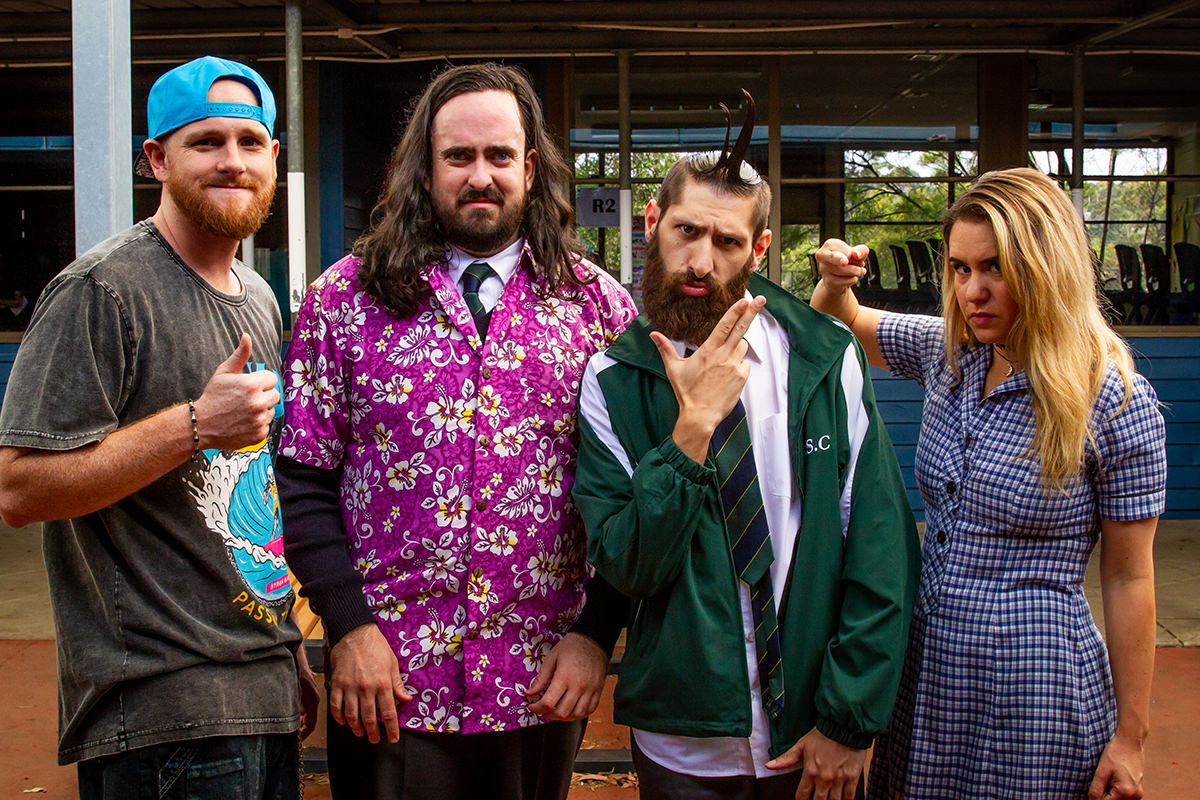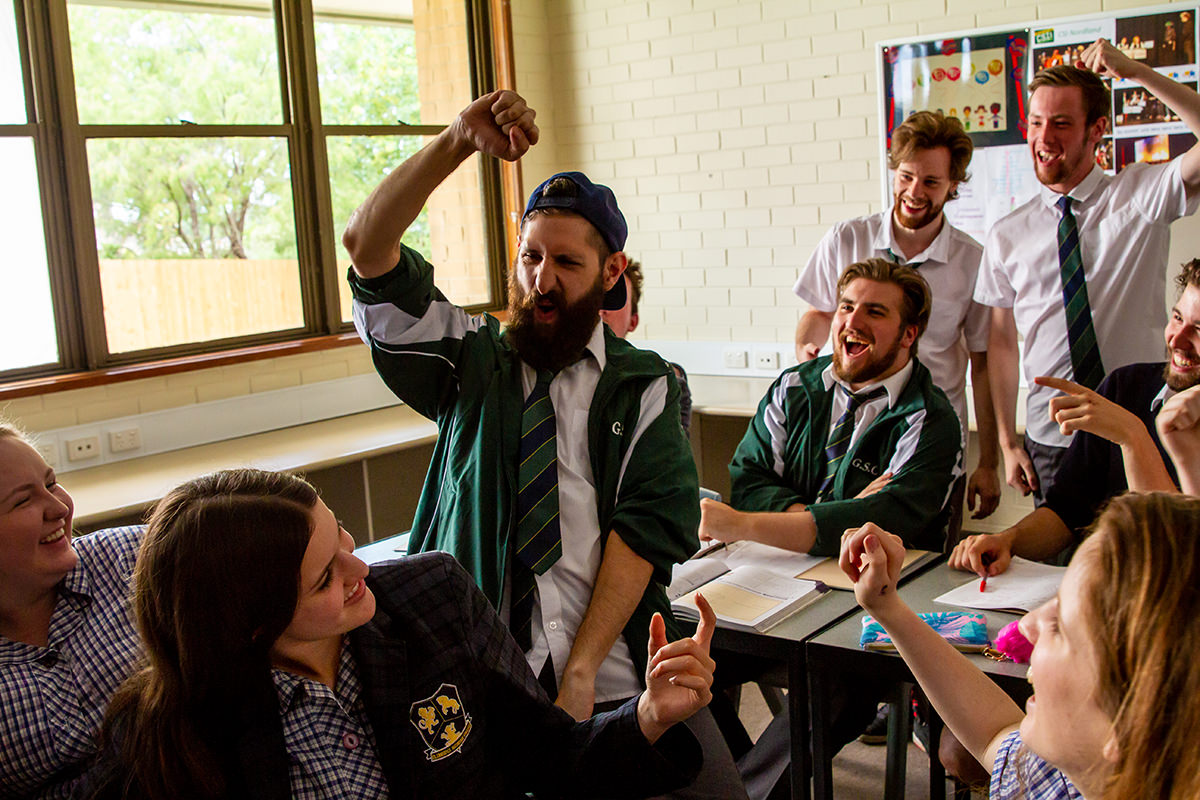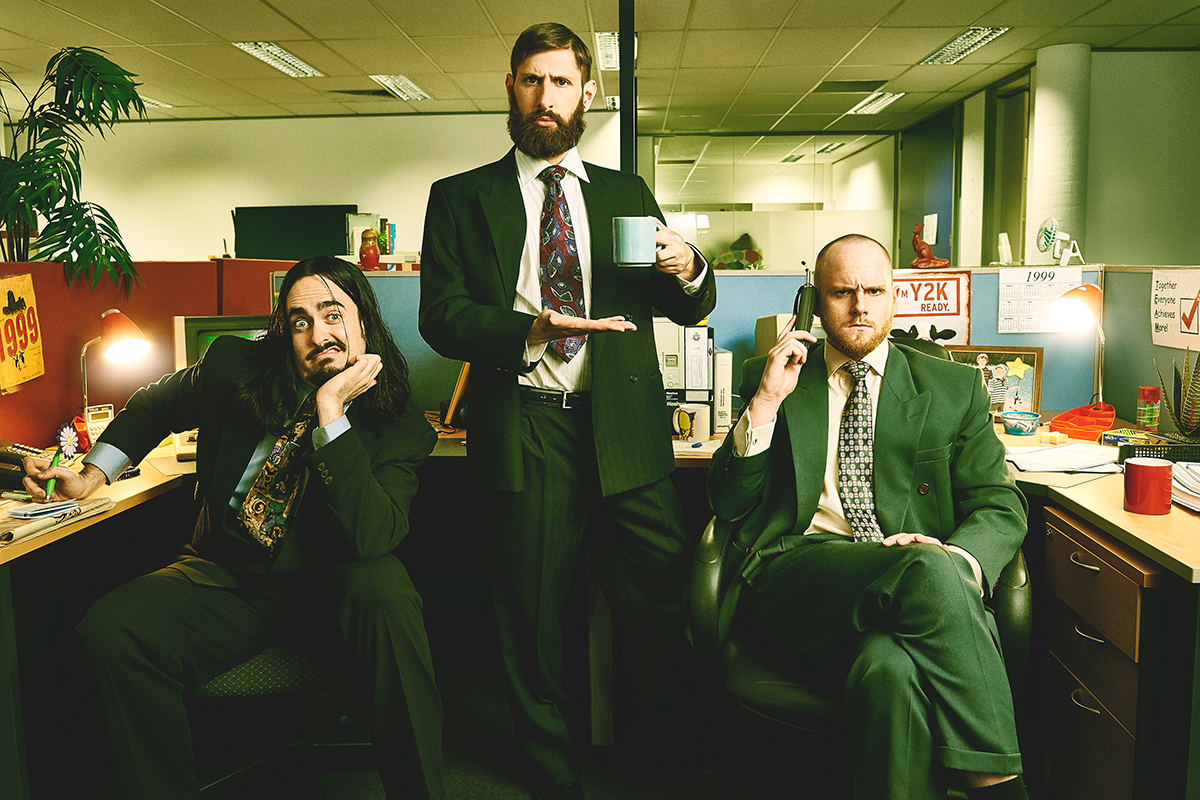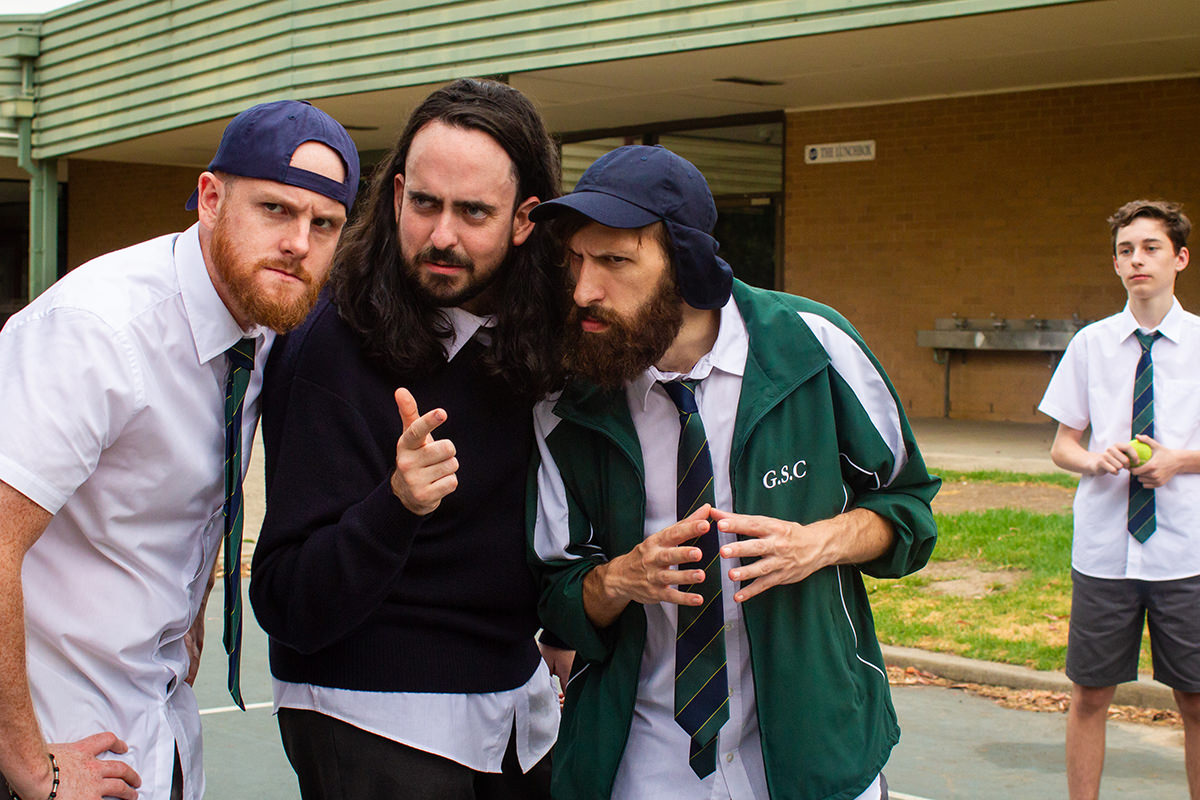Industry Insights: 8 things we wish we knew before LOL
Oh hello. It’s us, Aunty Donna.
 Aunty Donna
Aunty Donna
Members of the Australian screen sector share their career learnings in this Industry Insights series - a continuation of the Advice from Isolation series. Subscribe to Screen Australia’s newsletter for additions to the series.
How are you? Me too. How’s the family? Me too. What are we doing today? Good question. Today we are presenting 8 bits of wisdom that we have gathered from our experiences, success, mistakes and generally things we wish we had known when we started as online video content creators. Hopefully some of it is good.
Have consistent releases
Unlike other YouTubers, we don’t release every day or even every week of any given year. Rather we have series or even seasons of content that come and go and fluctuate in duration from anywhere between 4 to 11 weeks. However, when we have a bunch of content ready to go, whether it be a bigger budget series or a collection of unrelated sketches / videos, we always plan a very thoughtful release schedule that focuses on consistency and clarity. Pick a day, pick a time, tell everyone, and stick to it. Very much like traditional TV (funnily enough), it helps people know when to expect your next video, builds a rhythm of when people remember to check your channel, and hopefully creates that additional bit of hype week to week as your audience looks forward to the drop. Additionally, it makes the release feel more legitimate, postulating a degree of care and importance for the series as a whole. It’s saying to your audience, and the world, that this has a proper release because it is a proper show, regardless of whether it’s a small web series with no money or a fully funded series.
Know your platform
Channel 9 and Netflix are different things. YouTube and Facebook and different things. Instagram and TikTok are different things. Twitter and Village Gold Class Cinema are different things. There are lots of different things and unfortunately, I don’t have time to list them all.
What we’re saying is please consider the viewing habits of the users of each and every platform. If the long opening title’s sequence from Sam Rami’s Spiderman was on YouTube people would either skip it or watch something else. If Watchmojo’s Top 20 Greatest Ice Cream Flavours of All Time was on at the cinema no one would go. So it’s worth spending some time researching your platform, find successful creators in the same field as yourself and copy what they do well. Look at each platform's tools and how it presents content to its users and think about the best way you can use that to tell your story. Don’t compromise your artistic integrity but do question whether you’re holding onto ideas that are only applicable to irrelevant platforms.
And one last time for fun, SBS Food and a polaroid picture of a small horse are different things.
Don’t drop all episodes of a web-series at once on YouTube
It might work for Netflix, but that doesn’t mean it works for YouTube. As highlighted above, they are different things and need to be considered differently. Netflix are a service that releases multiple TV shows and movies every week and are constantly promoting all of these various shows. They promote one show, it comes out all at once and they move onto the next one. As a web series on YouTube though, you’ve only got that one show you need to promote, so by staggering it out and doing an old-fashioned weekly release, it means you have multiple weeks’ worth of content to promo. However, if you release the series all at once then finding things to promote in the second, third, fourth weeks becomes much harder.
On top of this, there’s also the idea of viewing habits and considering how people watch YouTube vs. Netflix with the general consensuses being that people sit down on their couch to binge a whole series on Netflix as opposed to a quick, one off video on YouTube.
Also, it’s worth noting that ABC iview falls into the Netflix category of being a place that people generally go to for a proper viewing experience and therefore a full series drop makes sense.
 Glennridge Secondary College
Glennridge Secondary College
Video Titles & Descriptions
Picking the titles for our videos is often a painstaking search for absolute simplicity and clarity but is always, always worth the effort. We think of titles as mini descriptions of the video (not just a title in the traditional sense) and one of the video's most important marketing tools. It’s a contract between you and the audience - you set up exactly what it is they are going to be clicking on, and then you need to deliver on it. In the past we have added information beyond a catchy title and included the series title and episode number (eg. Cresps - Aunty Donna’s Rumpus Room, Ep 01 as an example). In opposition to using a clean title, we have found a few pros and cons to this approach. Pros: Audiences will know it’s part of a series and, given they had a good time, will hopefully explore more of the series thus increasing their time on your channel. Cons: It can muddy your title, making it too long, and affect the clickability when it’s shared on other platforms like Reddit. We’ve done both and still discuss what we think will work best project to project.
Give it life beyond one post
So, the final episode of your internet web series has been released. What do you do now? One element of online content that is distinct from TV is that the series continues to sit on the platform after it’s released. To you, it may feel like it’s all over - but many local catch up services like iview or SBS On Demand will leave a show up for up to a year (or longer), and if it’s on YouTube it’s pretty much going to sit there forever. There’s so many different ways you can continue to use the content, to name just a few options you could: share clips, photos and memes from the series on your other social platforms; create playlists; reshare episodes when relevant stuff happens in the news or it’s a relevant time of year (you best believe we’re gonna be sharing our sketch about Christmas Pud a billion times come December). You spent a shitload of time, effort, money and energy creating your web series, make sure you get every last drop of delicious content juice out of it.
 Aunty Donna
Aunty Donna
Think long term
From the experience of building the Aunty Donna channel we have really come to learn the value of having just that - a channel. Having a channel means that you’ve got something bigger than one project, one show or one person to develop. It’s an entity that can become larger than the sum of its parts and an ideal for people to latch on to. We don’t define our YouTube experience as any one series (1999, Glennridge Secondary College etc.) but rather as just simply - The Aunty Donna Channel - a place for loud, weird and heightened sketch comedy. With (hopefully) the idea being that people come to our channel to get that experience.
So for example, starting a new YouTube channel for a series you’re about to release and naming the YouTube channel after that series gives you a very limited life span, because when you release your next series, you’ll have to start all over again. However, if you can create a larger umbrella for it, e.g. under the name of your production company or an entirely separate channel name (The Funny Channel!) then everything you do can be uploaded to this channel and you have something that you can build long term.
To be fair this is much easier with a comedy (and sketch comedy) group, but even for drama the idea of building a long-term channel still applies.
(Trying to) make profit
In our experience you can profit from releasing a web series but just not directly. Unless you’re releasing content consistently, over a long time period and it’s getting lots and lots of views chances are you aren’t making any meaningful ad revenue online. And if you’d like to make a web series, chances are, like us, you won’t make meaningful ad revenue either.
However online sketches are key to what makes us profitable as they are the best marketing for us and our brand. People watch our sketches and then buy a ticket to our live show or they buy some merch or they listen to our podcast and then sign up to our Patreon or they do all the above. Funding bodies watch our sketches and decide to give us a budget to make higher quality content. Advertising agencies watch our sketches and commission us to make ads and sponsored content. TV executives watch our sketches and put us in their programs or consider us to make our own. Because we invested our own money and time into YouTube we can all work full time making comedy.
Be platform agnostic
When one of our videos first did well on YouTube, we were getting so much advice to focus on YouTube almost exclusively.
“You can be the Hank Green of sketch comedy!” they said! “You are to sketch comedy groups what James Charles is to people doing makeup videos!” said someone I’m sure, “All you need to do is upload 45 billion videos a day.”
The advice (things like uploading three videos a week) would have meant sacrificing the quality and quantity of all the other parts of what we do (our other social media accounts, our live shows, our podcasts, etc). In the end, we decided to keep giving more or less equal attention to all the streams of our creative output. At the time, it felt very much like the wrong thing to do.
As we slowly grew all our platforms, many of our peers rocketed past us with millions of views and subscribers. But you never know when an algorithm might change, or the way people engage on that platform, or what content advertisers decide to be in front of, or when a dumb American dude will shoot a brutally insensitive video blog in the suicide forest in Japan. If you’ve put all your eggs in one basket, then your entire career and brand is based on the whims of a group of billionaires in Silicon Valley who have a majority share in that basket. As a very famous YouTube person - who I had never heard of before I met them backstage at a Vidcon meet and greet - said to us - “Why build your mansion in someone else’s backyard?”.
We make comedy. And we put it out on any platform that works for us - and if any of those platforms stop working for us, we’ll survive, because we have six other ones that are plodding along too. Don’t define yourself by the platform you’re releasing your art on - that’s just a form of distribution, it’s not who you are. Unless you’re a TikToker, then you’ll be fine. TikTok is 4eva.
 Glennridge Secondary College
Glennridge Secondary College

What to read next
The questions you should be asking yourself if you want to create an online series and make sure it connects with an audience.
29 Apr 2020
Caris Bizzaca